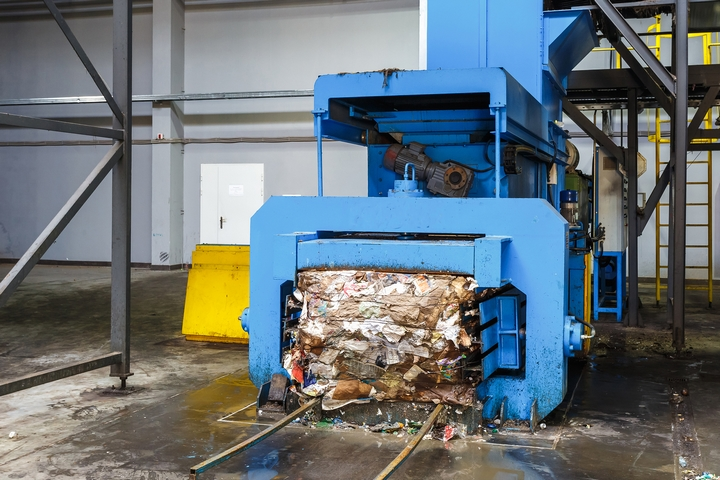Managing waste efficiently is a critical concern for large facilities such as manufacturing plants, shopping malls, hospitals, and educational institutions. The volume of waste generated in these environments can be substantial, and handling it without proper equipment can lead to logistical challenges, increased operational costs, and environmental issues. An industrial garbage compactor is a solution designed specifically to streamline waste management processes in large-scale operations. This article explores how an industrial garbage compactor enhances waste handling efficiency, reduces costs, and promotes sustainability in large facilities.
Understanding the Role of an Industrial Garbage Compactor
An industrial garbage compactor is a heavy-duty machine engineered to compress waste materials into a much smaller volume than their original size. Unlike standard residential compactors, industrial versions are built to handle larger quantities of waste continuously and withstand the rigorous demands of commercial and industrial environments. The compaction process reduces the bulk of waste, enabling easier handling, transportation, and disposal. By consolidating waste, these compactors help large facilities maintain cleaner, more organized waste storage areas and improve overall waste management workflows.
Improving Waste Volume Management and Storage
One of the primary benefits of using an industrial garbage compactor is the significant reduction in waste volume. Large facilities typically generate diverse types of waste, from packaging materials and food waste to industrial byproducts. Without compaction, managing this volume requires frequent collection and large storage areas, which can become unsanitary and cumbersome.
The industrial garbage compactor compresses waste into dense, manageable blocks or bundles, dramatically decreasing the space required for storage. This volume reduction allows facilities to store more waste on-site before collection, reducing the frequency of waste pickups. Fewer collections translate to lower labor and transportation costs, as well as minimized disruption to facility operations.
Enhancing Operational Efficiency and Safety
In large facilities, the logistics of moving and managing waste can impact operational efficiency. Waste accumulation without proper compaction can obstruct pathways, clutter waste rooms, and create safety hazards for employees. An industrial garbage compactor provides a centralized solution for waste processing, allowing staff to dispose of refuse quickly and efficiently.
The compactor’s design often includes user-friendly controls and automated functions that simplify the waste handling process. This minimizes the physical effort required from personnel and reduces exposure to unsanitary conditions. By containing waste within a sealed compaction chamber, the machine also helps control odors and prevents waste spillage, contributing to a healthier and safer workplace environment.
Environmental Benefits and Regulatory Compliance
Large facilities face increasing pressure to adhere to environmental regulations and reduce their ecological footprint. An industrial garbage compactor supports these goals by enabling better waste volume management and facilitating recycling efforts.
Compacted waste occupies less space in landfills, which contributes to more sustainable waste disposal practices. Additionally, the compaction process can improve the segregation of recyclable materials by simplifying the sorting and transportation phases. Many facilities integrate industrial compactors into comprehensive waste management programs aimed at reducing landfill use and maximizing recycling rates.
Moreover, proper waste compaction helps facilities comply with local regulations regarding waste handling, storage, and transportation. This compliance mitigates the risk of fines and enhances the facility’s reputation as a responsible corporate citizen.
Cost Savings and Long-Term Investment
While the initial investment in an industrial garbage compactor can be significant, the long-term savings justify the expenditure for large facilities. By reducing the volume of waste, these machines decrease hauling and disposal fees, which are typically charged based on waste weight and volume. Fewer waste pickups also reduce labor costs and operational disruptions.
Furthermore, an industrial garbage compactor extends the lifespan of waste storage areas by preventing excessive waste buildup and damage to containers. This results in lower maintenance costs and less frequent replacement of waste management infrastructure.
In the broader perspective, investing in an industrial garbage compactor aligns with sustainable business practices and corporate social responsibility, which are increasingly important in today’s market environment.
Conclusion
An industrial garbage compactor plays a vital role in making waste handling more manageable and efficient for large facilities. By significantly reducing waste volume, improving operational efficiency, supporting environmental compliance, and delivering cost savings, this equipment offers a comprehensive solution to the complex challenges of large-scale waste management. Facilities that adopt industrial garbage compactors can expect a cleaner, safer, and more sustainable environment while optimizing their waste disposal operations.



